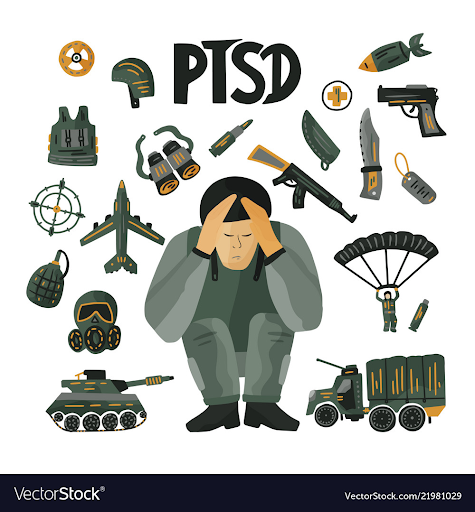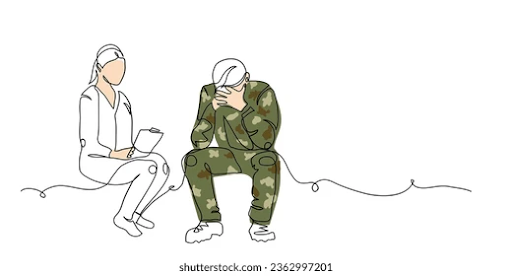Shell-shocked: PTSD and its effects on Indian Military Men
Life in the military is stressful, and it is not for everyone. It is a life that is symbolic of national pride and responsibility. Research has shown many positives to being employed in the military such as a sense of belongingness, increased self-esteem, mental robustness, resilience, agility and efficiency.
However, due to the sensationalised reports in media on the lives of military men, very little information is relayed on their mental and emotional health. High-risk and violent environments are expected as being a part of this job, but there are additional obstacles that a military man faces like:
- Social separation from family and friends
- Inadequate resources and facilities in remote areas
- Financial issues
- Marital problems
- Problematic leadership, etc.
The job may even instil some qualities that can be detrimental if not addressed and dealt with, such as unusually high levels of self-reliance, a sense of personal and professional alienation, martyrdom, trouble with personal relationships and susceptibility to mental disorders, a very common one being PTSD.

What is PTSD?
PTSD is a mental disorder that can disrupt every aspect of a person’s health. A few key symptoms a person encounters in this disorder are:
- Recurrent and intrusive recollections of a traumatic incident
- Avoidance of any sensory elements associated with the incident
- Experiencing negative feelings
- Hypervigilance and hyperarousal
- Aggressiveness
- Difficulties concentrating
- Recklessness
On a surface level, PTSD affects a man’s sex drive by creating problems with his libido, ejaculation, satisfaction and overall desire to have sex. On a more psychological level, it creates a barrier against intimacy and emotional connection. Sex is an act which humans use to bond with each other and previous traumatic experiences can create complications.

When a person is afraid or aroused, the hormone norepinephrine is released into the brain. A PTSD-afflicted person’s brain has an irregular release of this hormone and this leads to confusion between a traumatic event and an intimate moment, which can result in panic attacks and flashbacks. The hypervigilance from PTSD can also make it hard to ‘let your guard down’, as sex is an act of relinquishing control and being vulnerable. This can manifest as being distracted or being physically or emotionally disconnected from the sexual experience; some describe this as ‘floating outside of their bodies’.
This issue is further heightened in men. There is a lot of cultural stigma among men seeking help, especially if it’s anything related to sex. There is hardly any research on the topic that is available to the public on the impacts that military life has on Indian men and their sexuality, due to the lack of awareness and taboo around the topic
Final Words~
There have been efforts made recently to draw attention to this issue of the mental health and well-being of the soldiers. The government has initiated several mental health schemes under the DIPR (Defense Institute of Psychological Research) over the past decades to improve the conditions of Indian military men. There have also been several measures that have been undertaken to combat the stresses of their job, such as setting up telephone helplines and psychiatric centres that deal with the Indian soldier’s mental well-being. However, we are still light years away from directly discussing the aspect of sex in these men’s lives.
Author

